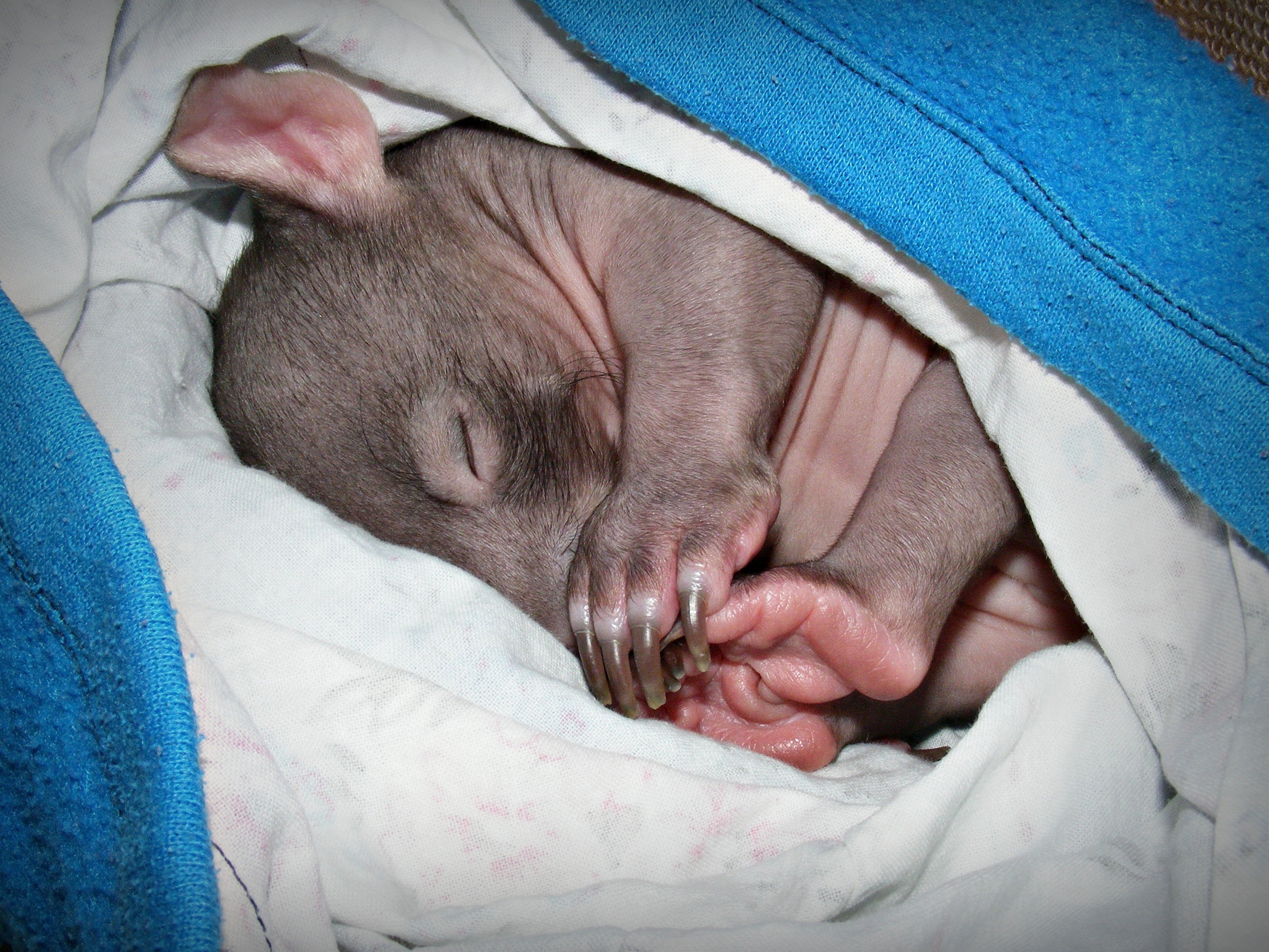Collaboration ensures successful release for lucky Pelican
June 2025
For emergency rescue support 24/7 please call 1300 094 737

This young female wombat came into care in late October last year weighing less than a kilogram, after being rescued from her dead mothers pouch. Her mother had been killed in a collision with a motor vehicle.
Wombat joeys need to be hand reared until about 18 months old and over that time they are initially very dependent on their substitute "mother" but have to be gradually taught how to survive in the wild.
Known as Pixie while in care, she now weighs over 5.6 kilo's and is growing up and beginning to learn how to be a wombat in preparation for her release. She has gone from needing 5 bottles each day to only 2 now she is also starting to graze, explore and learn how to be a wombat.
She is now learning by going on early morning and evening walks in the bush with her carer, Kay.
She is now housed in a large box/burrow in the shelter shed in Kay's wombat yard, and spends two hours each morning and evening outside time after her bottles - playing, grazing, digging and going on paddock/bush walks with me learning how to be a proper wombat!
The rest of the time she spends either asleep or 'playing' in her box, which is set up with straw, earth and logs, and fresh grass for her to nibble on - so that she can get used to the routine of being in a burrow all day.
Raising orphan wombats takes vast amounts of time, skill and dedication. The reward is the successful release of a grown wombat back into the wild, at about 18 months old.

Stay in touch and get our regular rescue stories, WIRES updates and a free copy of our 15 Ways to Help Wildlife ebook
June 2025
May 2025
April 2025